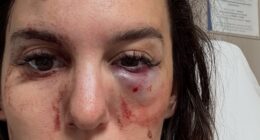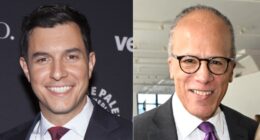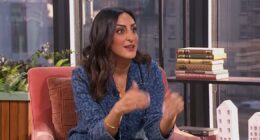
Yesterday Pamela Paul, the former editor of the NY Times Review of Books, wrote about a new trend in the publishing industry. Her piece is titled “There’s More Than One Way to Ban a Book” and it offers some strong criticism of the leftist takeover of the industry which she says has introduced a new strain of self-censorship.
The American publishing industry has long prided itself on publishing ideas and narratives that are worthy of our engagement, even if some people might consider them unsavory or dangerous, and for standing its ground on freedom of expression.
But that ground is getting shaky. Though the publishing industry would never condone book banning, a subtler form of repression is taking place in the literary world, restricting intellectual and artistic expression from behind closed doors, and often defending these restrictions with thoughtful-sounding rationales. As many top editors and publishing executives admit off the record, a real strain of self-censorship has emerged that many otherwise liberal-minded editors, agents and authors feel compelled to take part in.
A former chief executive at publishing giant MacMillan tells Paul that censorship is happening on both the far left and far right. On the right he means the pressure to remove some books from school curriculums and school libraries. This strikes me as a very unfair comparison. There may be some cause for concern about removing certain books from curriculums; however, deciding what books get read by tens of thousands of students in public school is always going to be a public decision in which parents, through school boards, have some say. More to the point, even if a book is removed from the curriculum under public pressure from parents, it doesn’t cease to exist. You can still order a copy of the book on Amazon or pick one up at a local bookstore. The books in question are still in print. What the left is doing to book publishing is far worse. To the degree the woke get their way, no one will ever see the books they disagree with because they won’t have been published at all.
Now, many books the left might object to never make it to bookshelves because a softer form of banishment happens earlier in the publishing process: scuttling a project for ideological reasons before a deal is signed, or defusing or eliminating “sensitive” material in the course of editing.
Publishers have increasingly instituted a practice of “sensitivity reads,” something that first gained traction in the young adult fiction world but has since spread to books for readers of all ages. Though it has long been a practice to lawyer many books, sensitivity readers take matters to another level, weeding out anything that might potentially offend.
Even when a potentially controversial book does find its way into print, other gatekeepers in the book world — the literary press, librarians, independent bookstores — may not review, acquire or sell it, limiting the book’s ability to succeed in the marketplace. Last year, when the American Booksellers Association included Abigail Shrier’s book, “Irreversible Damage: The Transgender Craze Seducing Our Daughters,” in a mailing to member booksellers, a number of booksellers publicly castigated the group for promoting a book they considered transphobic. The association issued a lengthy apology and subsequently promised to revise its practices. The group’s board then backed away from its traditional support of free expression, emphasizing the importance of avoiding “harmful speech.”
Jesse Singal has been writing about the censorious mob surrounding young adult publishing since at least 2019. He wrote a Twitter thread about another YA author accused of racism in December 2020. So the fact that the recent adoption of “sensitivity reads” came from YA fiction publishing doesn’t surprise me.
Finally, the piece generated a reaction from author Joyce Carol Oates:
(a friend who is a literary agent told me that he cannot even get editors to read first novels by young white male writers, no matter how good; they are just not interested. this is heartbreaking for writers who may, in fact, be brilliant, & critical of their own “privilege.”) https://t.co/GmtVY8lbCV
— Joyce Carol Oates (@JoyceCarolOates) July 24, 2022
She’s getting some strong pushback including from 1619 Project author Nikole Hannah Jones:
READ RELATED: Trump's Super Human Powers Exposed
Anonymous single person anecdote with wildly unprovable claim. You all want to be oppressed so badly.
— Ida Bae Wells (@nhannahjones) July 25, 2022
And from the author of “The Truth About White Lies.”
This is such a lie lol you’re not the only one who “knows people,” Joyce. I know tons of literary agents and literally none of them are saying this.
— Olivia A. Cole (@RantingOwl) July 24, 2022
Here’s the rebuttal a lot of people are pointing to.
The NYT analyzed the 8000 novels published by major houses since 1950 and 95% were by white authors. https://t.co/OlaVlOCdIB pic.twitter.com/vjIrDg4gMz
— Julia Carrie Wong (@juliacarriew) July 25, 2022
Joyce Carol Oates’ anecdote aside, if removing books from a public school curriculum constitutes book banning then preventing a book from ever being published because the content offends you is closer to book burning. It ensures no one else is allowed to make the error of reading the offensive material.
Update: Joyce Carol Oates is not backing down.
Sorry it’s so, but it has been so for some time. I am surprised that others are surprised or disbelieving. We hope for exceptions & of course there are some. https://t.co/pllnMcpmB8
— Joyce Carol Oates (@JoyceCarolOates) July 25, 2022
Source:





